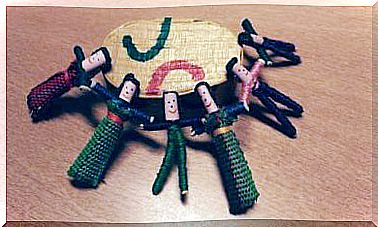Tell Me How You Talk And I’ll Tell You What You Are (8 Personality Types)

It is common knowledge that our personality has a direct influence on the way we communicate. Since we are trend animals, we need to know the most common options to know how to act with each type of person.
Thus, it becomes really useful and interesting to know how we can behave in front of toxic communicators who just want to argue or who always want to be the masters of reason. As we will see below, patience, assertiveness and empathy are common aspects that we must always maintain.
personality types
1. The undecided
They tend to have a lot of doubts and are insecure, so they require a lot of attention and dedication to be interpreted correctly. These are people who seek to have many options when it comes to acting, to avoid regret. For example, they compare many products in the supermarket before deciding which one to buy.
It can be tricky to relate to them. It is not ideal to impose an adequate point of view or show excessive security, as they will get caught up in it and impede its development. It is best to foster tranquility and trust with words that encourage cooperation and empathy.
It is necessary to avoid making the undecided person feel too different for their indecision. We shouldn’t be too concrete or too polished any comment we want to make, as it is likely to focus on aspects that are not very relevant.
2. The silent
This type of person does not offer us information about their emotions , neither positive nor negative. They keep them to themselves, just as they keep their opinions. They tend to reflect a lot on the situation in which they live, observe us and analyze our main characteristics.
The attitude that will most facilitate our relationship with them is an empathetic and loving disposition. The best way for them to realize that we care about them and for them to feel comfortable is for us to ask closed questions… that is, to favor YES or NO answers.
The fact that they are people who say little or nothing, makes us think that they don’t listen to us and, therefore, we end up raising our voices. This is very uncomfortable and we should avoid acting that way. Also, if they feel like making any comments, it’s better that we don’t interrupt them.
3. The egocentric
He is a person who thinks he knows everything and makes us believe that he has a firm and well-founded opinion on any topic we talk about. He shows himself superior, doesn’t take advice and always tries to control the situation.
This is a personality type that is toxic to yourself in the first place. The only things that please them are the compliments and, at all times, they allude to their great knowledge of whatever we are talking about, disregarding what others say.
In order to relate to them and not “die” in the attempt, we must be very objective and concrete, proving our knowledge with concrete information. The secret is to show assertiveness, be empathetic and listen to them, to facilitate a good interaction.
If we consider the self-centered person to be superior to our strengths, we must subtly withdraw. We must avoid radically interrupting a conversation, arguing, showing impatience or ignorance.

4. The reflective
This type of person tends to look for a lot of information about the topic at hand. When relating to them, we need to be patient and provide the information we have in an objective and complete way.
It is important that we let them think and adapt to their rhythm if we want to have a fluid conversation. We should avoid being in a hurry, as she is a poor counselor, and it is inappropriate to force these people to talk, as we can make them nervous.
5. the conversationalist
This type of person likes to talk about anything ; whatever the subject to be dealt with. They can jump from one topic to another constantly, so they require a lot of attention.
They are always interested and take into account what others have to say. For this reason, when relating to them, it is important that we be concrete. Enthusiasm must be maintained and we must not be tired or dejected.
6. The debater
We are again facing a type of personality that can drown us. This type of person, in their mad desire to contrast and argue about everything, can end up being boring, making us feel doubtful and responsible.
These people are surrounded by a toxic cloud, with airs of superiority and grandeur, which can put a limit on our patience.
It is important to stand firm and demonstrate data that reinforce our opinion, so that they are not swallowed by the debater’s ego. It is not advisable to get into arguments or show weakness, nor is it appropriate to be impressed by sarcasm or personal criticism.
7. The shy
Reserved people do not usually look us in the eye and impose great distances between themselves and others. Their posture is usually stooped and suggests a certain insecurity. They have a hard time asking questions out of fear of making a fool of themselves and because they feel fearful or anxious.
We can increase the security of these people by proposing and reinforcing the positive, giving advice and offering help to make them feel comfortable and free.
The secret is to propose a calm context and favor progressive eye contact, as well as non-verbal communication that does not invade the other’s intimacy. Staring is not advisable as it can hinder the person’s ability to open up to us.
8. The unbeliever
Again, we come across people who “vampirize” communication. They maintain a constant defensive attitude, maximize the negative and minimize the positive.
They are usually predisposed not to change their minds, so they have no interest in discussing and tend to allude to an attempt at manipulation on the part of the interlocutor.
It is important that we are very objective when talking to them, so that we do not give them the option of misinterpretation; given its tendency to make a mountain out of a grain of sand, we must be cautious, assertive, empathetic, and confident.
Patience is the mother of science, so we must show tranquility and we must not leave them alone, as this could reinforce their idea of lack of attention.
Image credits: nuvolanevicata









